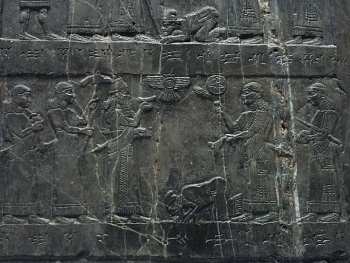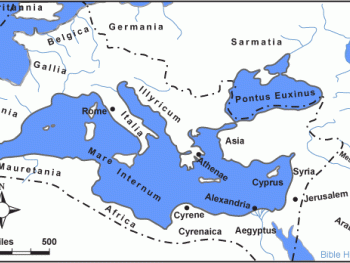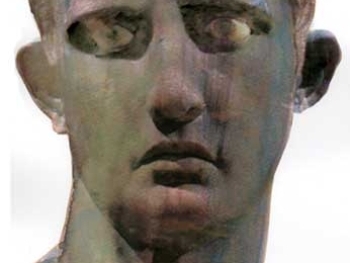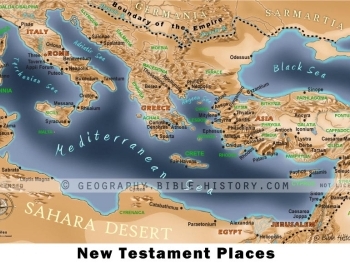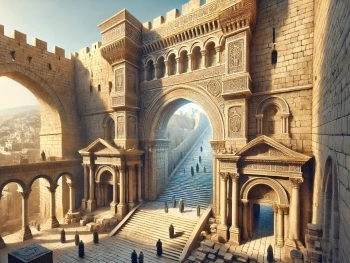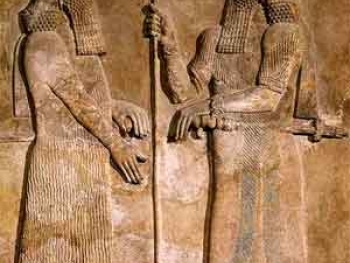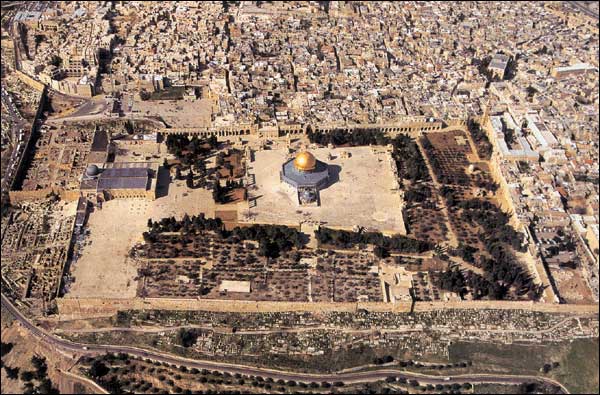
The etymology of the name Jerusalem is not certain; it is apparently of Semitic origin. An Egyptian notice from the third quarter of the nineteenth century B.C. mentions Urusalimum. The Assyrians called it Ursalimmu. Modern scholars take these names to mean “founded by the god Shalem,” a god of the Amorites (Jerusalem is said to have been founded by Amorites and Hittites; (Ezek 16:3,45). In time, however, the second part of the name became associated with shalom (“peace”) in Hebrew minds, and Jerusalem came to mean “city of peace.” Romans and Greeks called it Hierosolyma. To the Arabs it is El Kuds, meaning “holy town.”
Source:
